- Home
- Trevor Hoyle
The Gods Look Down Page 12
The Gods Look Down Read online
Page 12
‘His body is deformed and he stands awkwardly, one shoulder raised,’ the young man murmured in the ear of the High Priest. ‘He doesn’t breathe as normal men do but sucks the air through a tube which is in the upper part of his chest, a shiny conduit from his chest to his mouth.’ He didn’t have the words to describe him adequately. ‘His voice, as you can hear, sounds distant, like a faint echo.’
‘And where is he from?’ Eli asked gently.
‘He says he is a Dagonite from the city of Ashdod.’
‘Then if he comes in humility he is welcome to our temple.’ He looked to where he knew the visitor stood and raised his voice. ‘The High Priest of Shiloh sends greetings to your Lord who resides in the city of Ashdod. Let there be peace and goodwill between our two peoples.’
The Dagonite emissary didn’t respond. He stood before the High Priest, his breathing hoarse in the tube. He was a huge man, even though twisted, with a single sharp protuberance, which gave him the appearance of a hunchback.
Uzza was disquieted by the man’s sullen behaviour. He called out, ‘It is customary in our city to show respect before the office of the High Priest.’
‘I bow to no one but the god Dagon.’ The words were forced from his throat with a great effort and his breathing was hollow and rasping in the tube, like a harsh sigh. He looked towards Phinehas for a moment, whose face betrayed no emotion, and then said, ‘The god Dagon is the most powerful in all this land. He sends to know if the people of Shiloh acknowledge him as the one true god. His power is eternal, his vengeance swift and terrible, but his mercy is prodigal to those who truly believe in him.’
And now he waited, this sighing hulk of a man, having delivered his speech, as someone who is trained by rote to speak and then must pause to await a response.
Eli said, ‘Is your god not content with his own people? Are they not worthy of him, or he of them?’ His eyes, veiled with rheumy whiteness, roamed blankly round the temple as if searching for something. ‘Does he seek other subjects to pay him the respect his own brethren do not?’
‘The god Dagon is the one true god. He sends to know if the people of Shiloh—’
‘I think we understood the first time,’ Uzza said. His voice trembled with a furious rage which he tried to contain. ‘You come to our city and are received with kindness and in good faith, and straightaway you betray those sentiments and insult the hospitality shown you. Is this how your “god” instructs the people of Ashdod to behave?’
‘The god Dagon means you no harm,’ the emissary said in his hollow rasping voice. ‘He sends me to tell you that you need have no fear. But it is reported to him that the people of Shiloh worship false idols and that you have in your keeping a device of ancient days, said to have come from heaven – is this not so?’
He looked again at Phinehas as if seeking confirmation of this fact. The younger son glanced towards his father in sly expectation. Hophni stood nearby, glowering and flexing his thick forearms.
‘Why should this concern your god?’ Eli asked. ‘It is true that we possess such an object, revered by our tribe, which has belonged to us for many generations. We keep it here in the temple as a symbol of our faith.’
‘It is sacrilegious to worship false idols,’ the emissary said tonelessly. ‘The god Dagon is displeased with the people of Shiloh and sends me to take from you the false image and to set in its place his own likeness. His power is eternal, his vengeance—’
‘Swift and terrible, yes we know,’ Eli said, and Uzza was surprised to see a faint smile on his face. The High Priest went on, ‘If your god believes the image to be false why does he not want it destroyed?’ Again the smile.
‘That is his order: to cast out all false idols.’
‘But not to have them destroyed? That seems very strange. You have been told to take it with you to the city of Ashdod; is Dagon so afraid of the idol that he must see it for himself?’
The Dagonite emissary shuffled his feet as if embarrassed or lost for words. His breathing rustled in the tube. He raised his dim strangely-coloured eyes and looked towards Phinehas as if in need of guidance.
Phinehas said easily, ‘From what the emissary says it would seem that Dagon is a warlike god who will only be appeased if we relinquish the Ark to him.’
‘Yes,’ the Dagonite mumbled. ‘Yes, that is right. That is my message.’
‘You interpret for him very well,’ Uzza said dryly, casting a sidelong glance at the younger son.
‘I have a well developed understanding of people.’
‘And of gods, apparently.’
Hophni said sullenly, ‘Is the god Dagon prepared to go to war for the sake of the Ark? Is this all he requires, that we cease to worship false idols?’
‘The Ark is not a false idol and I will not allow my son to call it so,’ Eli said. He tried to rise and Uzza went quickly to support him. When he spoke the emotion had gathered in his throat. ‘The Ark is the handiwork of God, sent down from heaven to protect our Tribe, and you disgrace my name and His holy temple when you blaspheme in that manner. We shall never give it up – as Kish, First of the Prophets, is my witness!’
‘We may have to,’ Phinehas remarked casually, ‘The Dagonites are a powerful tribe. They are geared for war. How can we withstand them if they decide to attack?’
Eli sank back, his head vibrating with the palsy of old age. He spoke quietly, almost inwardly it seemed. ‘What fools I have raised in place of sons. Do you not see that our strength and salvation is in the Ark? Why do you suppose Dagon wants to possess it? He knows of its power and he wants the Ark for himself.’
‘I haven’t seen much evidence of its power recently, have you?’ Phinehas said to his brother.
‘I have never seen it,’ Hophni answered dully. ‘That’s if it exists.’
‘Do you doubt it?’ Uzza said. An idea had come to him and he was shaking inside.
‘I doubt what I’ve never seen.’
‘Then perhaps you should see it,’ Uzza said. ‘And the emissary of Dagon also. If he returns with evidence of its power perhaps his god will think twice before mounting an attack on a “defenceless” people.’
Phinehas came up to where his father sat; his face had darkened; he said sharply, ‘How is it that Uzza speaks so confidently about the Ark? Has he seen its power for himself? Have you shown him things you have not revealed to us, your own flesh and blood?’
‘Uzza has the wisdom to understand many things,’ Eli said. He sounded tired.
‘Do you mean that we’re stupid?’ Hophni stepped up alongside his brother. His heavy square jaw was set rigidly.
Uzza bowed his head. ‘I’m sorry, I have betrayed your trust. You asked me not to speak of such things.’
‘Speak of what?’ Phinehas demanded, looking from the young man to the old. ‘What are these things you’re keeping from us? Are we your sons or aren’t we? Don’t we have a right to know?’
‘It’s me who should know if anyone,’ Hophni said, sticking his lower lip out. ‘I’m to be the next High Priest.’
‘Who says?’ Phinehas jeered.
‘I’m the eldest son and the eldest son becomes High Priest,’ Hophni maintained stubbornly.
‘It hasn’t been decided yet.’
‘It doesn’t have to be decided, it’s the law.’
‘The law says that the High Priest must choose his successor and so far he hasn’t chosen.’
‘I have chosen.’ Eli’s blank eyes gazed placidly into the hazy distance. He raised his right hand and placed it on Uzza’s shoulder.
‘No,’ Phinehas said, shaking his head. His colour had risen. ‘That can’t be. I won’t allow it. We won’t allow it—’
‘What you will or won’t allow doesn’t matter.’ Eli’s voice was very calm. They would have to know and this was as good a time as any. ‘When I am dead, Uzza will be the High Priest in my place. This has been decided these many months past and during this time Uzza has received instruction in the holy rites of t
he temple. There is nothing either you, Phinehas, or you, Hophni, can do to alter the course of history which shall be written in the annals of our Tribe.’
‘You think not, old man?’ Phinehas said. He turned and pointed at the emissary. ‘There is the history of our Tribe, there in front of you, if you had eyes to see. It doesn’t matter one fig whether or not Uzza becomes High Priest because his term of office will be brief and inglorious. Once the emissary brings word to Dagon of your foolish obstinacy over that – that—’ he stuttered with black rage ‘—that thing you hold sacred, the history of the Tribe will be written in blood. And you will be to blame, old man, with your stupidity and religious dogma and your blind faith in a pile of useless old junk.’
Eli held the young man’s shoulder in a firm grip. ‘Now I know I have chosen wisely. From this day I will not speak of you as my sons. It will be recorded in our history that Eli, High Priest of the city of Shiloh, died without issue.’
‘You will die sure enough,’ Phinehas said. ‘Our history will record that before too long. The god Dagon will see to that!’
‘How do you know it isn’t Dagon who hasn’t long to live?’ Uzza said. ‘With all his armed might he cannot overcome the power of the Ark of God.’
‘Power?’ Phinehas said. ‘What power?’ He turned to the emissary. ‘Don’t be taken in by this talk. He hopes to frighten you with superstitious nonsense; the Ark resides in the silent inner chamber, hidden away from the people, because Eli knows it to be a false idol. He uses it to scare everyone.’ He snorted. ‘It hasn’t the power to scare a pariah dog.’
‘I’ve never seen it do anything.’ Hophni added. ‘Not a thing.’ He pulled at his meaty fingers, cracking the joints.
Uzza stepped down and said, ‘We should give the emissary something of importance to report to his lord and master.’
‘I forbid this,’ Eli said, reaching out his hands. ‘The Ark is not a plaything. It shouldn’t be used to frighten fools and unbelievers.’
‘You told me once that it was a wise man who knows the extent of his own ignorance.’ Uzza’s voice was very cold and menacing. ‘I hope to make the emissary wise and through him the god Dagon. Our guest should return with a story worth telling.’
‘But the danger …’ Eli said.
Phinehas looked around him. He sensed the uneasiness and said blusteringly, ‘The old man talks like a child. Let the emissary see the Ark; it will mean less to him than it does to us.’ He looked at his brother and tried to smile.
But when the emissary saw the Ark he halted abruptly and stared at it, his breathing a hoarse rustle in the tube which connected his mouth to his chest. He leered up at it sideways, his misshapen head held at an angle.
Phinehas said, ‘Don’t be afraid of the light, it comes from within the sphere. It can’t harm you.’
Uzza led the High Priest to the steps which went up to the catafalque on which the Ark rested and together they knelt and bowed their heads, their lips moving in silent prayer. Above them the Ark gave out its steady unremitting glow, lighting up the walls of the silent inner chamber which had been hewn out of the lava-rock. The high domed roof still bore the marks of the implements used by workmen of past generations, and all around the chamber, in niches hollowed out of the rock, elaborate objects of gold and silver and precious crystal gleamed in the bland unchanging light.
The emissary recorded all this. He noted each detail of the chamber, the sacred objects in their recesses, the rich heavy drapes deadening all sound; and he looked closely at the Ark itself, raised up on its platform, the glowing sphere like a huge skull and below it the pipes of burnished brass coming from this place to that, that place to the other. There were too, he saw, strange symbols on the flat part, pressed into the body of the Ark, which to him were meaningless. He was bewildered by it all, unable to comprehend its purpose, and the source of illumination was the most perplexing thing of all: no flame, no fire, no smoke – only pure steady light.
Hophni clicked his tongue and said, ‘You see how they worship the thing, as though it was a god itself. But it never moves,’ he told the emissary, ‘never speaks, gives no sign at all.’ He turned away, stamping his feet in irritation.
The emissary said, ‘I have never seen anthing like this holy object of yours. Where did it come from?’
‘It appeared to us in the desert one day,’ Phinehas said. ‘Out of the blue.’ He laughed openly. ‘So the Scriptures tell us. But your guess is as good as mine.’
‘I have no guess. It is unworldly.’
Uzza and the High Priest had risen. The old man turned his empty eyes on the others and held his arms high above his head. ‘Behold the Ark of God! It has watched over us for centuries and even now will deliver us from our enemies. Is it not a wondrous sight, emissary of Dagon? Will you tell your lord and master all you have seen in the temple at Shiloh?’
‘As your sons say, High Priest, it neither moves nor speaks nor makes a sign. It is fearsome and strange enough to frighten children but not grown men. The god Dagon could smite it down with a single blow.’ His broad slanting brow formed a bony prominence so that his eye-sockets were hidden by the shadow it cast. His features were made unreadable by their grotesque disproportion.
‘“By their unbelief shall ye know them”,’ Uzza quoted softly. He was smiling radiantly. He took Eli’s hand and pressed it between his own, holding it for a moment, then deftly mounted the steps of the catafalque, and the High Priest immediately called out to him:
‘Do not approach the Ark. I forbid it! Uzza, hear my command and obey, I beg you!’
Phinehas said, ‘This is a cheap trick even for you, old man. You think the emissary of Dagon will be taken in by this charade?’
Eli’s arms were outstretched in supplication; his feet fumbled uselessly to locate the step. ‘Don’t let him approach the Ark – Hophni, Phinehas – I beg you to stop him!’ He stumbled and fell full-length on the steps, still reaching out with hands the colour of old wax.
‘Take no notice,’ Phinehas said to the emissary. ‘They have practised this deception in the hope that it will impress you. In all the years since I was first brought to the temple the Ark has remained the same, exactly as you see it now. It’s quite harmless, I’d stake my life on it.’
Even as he was speaking Uzza had climbed to the uppermost level where the Ark rested, supported and held upright by three short struts which came out at an angle from the main body. The young man stood before it, the light from the sphere shining down on his head, and then reaching up on tiptoe, put out his hand. The two sons of Eli and the emissary of Dagon saw a sliver of light, like the finest strand of pure silver; it appeared at the tip of Uzza’s outstretched hand and seemed to connect him to the Ark and at once his entire body was illuminated as from within and the glow became so fierce that they had to shield their eyes from its blinding brilliance.
Eli too – even in near blindness – had been able to distinguish the intense light and he uttered a cry of anguish and pain; and then the glow faded so that his sight was dim once more and he could not see (as could the others) the standing figure of dark grey which crumbled and sagged, a body dissolving into dust.
*
The upper sphere of the Ark shone steadfastly in the silent inner chamber. In the shadowed recesses the sacred objects reflected their gleams of gold and silver, as still and silent as the source which illuminated them. Its presence was eternal, indifferent to time and the fortunes of men.
Eli knelt before the catafalque, his hands clasped tightly together, alone in sightless prayer. He was praying not for deliverance but for understanding. He did not think to question the wisdom of God, nor His mysterious ways, but he felt that his life had been wasted in ignorance if he did not finally understand why a good man should perish by the hand of the Lord when other men, of evil intent, were spared His wrath and holy retribution. Throughout his long life he had kept good faith, overcoming all doubt, believing that the final judgment would favour the meek,
the just, and all those who strove to live peaceably with their fellow men. The world had seemed to deny this creed, to fling it back in his face, and yet he clung stubbornly to his belief in the sure knowledge that God would ultimately punish the wrongdoer and reward the man of true faith.
How could he now explain – not to others but to himself – the injustice and futility of the young man’s death? Uzza had sacrificed himself to demonstrate the power of the Ark to the enemies of the Tribe, but surely it wasn’t necessary for him to die? Wasn’t it enough that he was prepared to give up his life to save the lives of others? God could not be so callous. Why should a man of faith be taken away when the earth teemed with evil and wickedness, when false gods sought to spread their corrupt rule and even now were planning to invade the city of Shiloh and sack the temple and carry off its most holy symbol?
He looked to where he knew the Ark was stationed and prayed for a sign. It was written in the Scriptures, from the time of Kish onwards, that whenever the Tribe was threatened or in jeopardy they had received a sign from heaven which had revived and strengthened their faith in the Lord God. Now, if ever, was such a time. If they were to defeat the Dagonites and prevent the desecration of the Ark, Eli, as leader of his people, required an act of affirmation from its Maker. In his heart, though he dared not think of it, it was to be atonement for the death of Uzza. Without a sign Eli doubted whether he had sufficient faith to sustain him in the deliverance of his people: more than anything he wanted to believe, to have his faith restored, but in effect he was making a bargain with God—
Show me the way, make me strong again, and I will serve you with all my heart and soul.

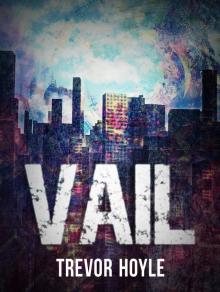 Vail
Vail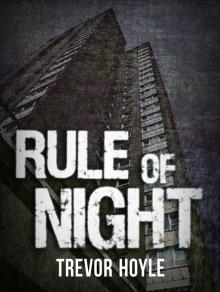 Rule of Night
Rule of Night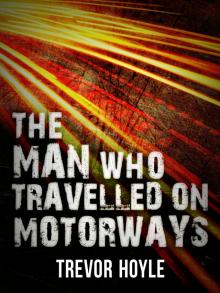 The Man Who Travelled on Motorways
The Man Who Travelled on Motorways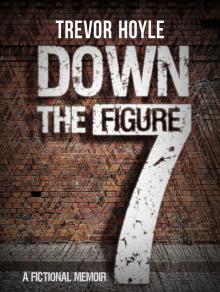 Down the Figure 7
Down the Figure 7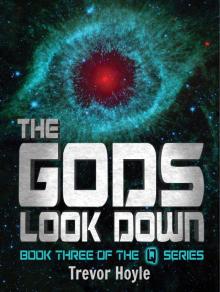 The Gods Look Down
The Gods Look Down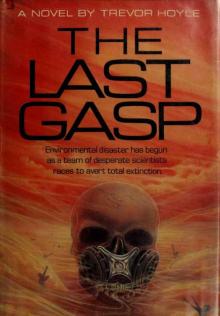 Last Gasp
Last Gasp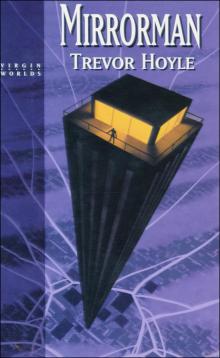 Mirrorman
Mirrorman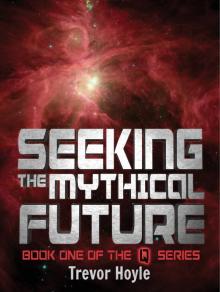 Seeking the Mythical Future
Seeking the Mythical Future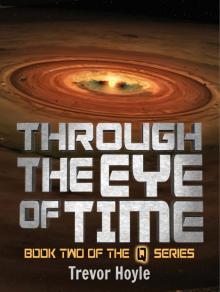 Through the Eye of Time
Through the Eye of Time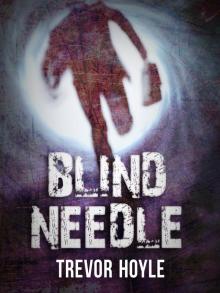 Blind Needle
Blind Needle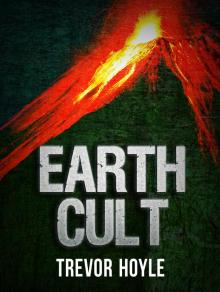 Earth Cult
Earth Cult